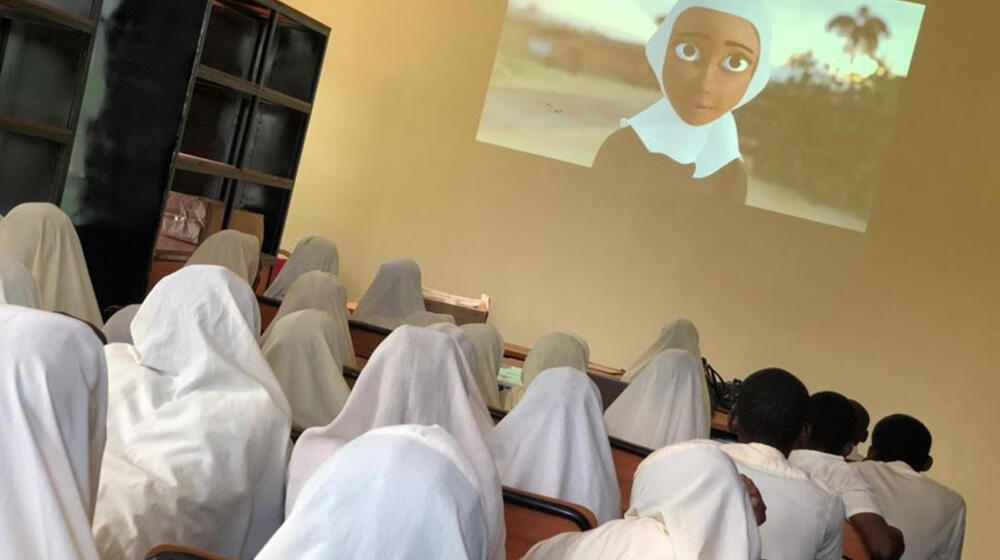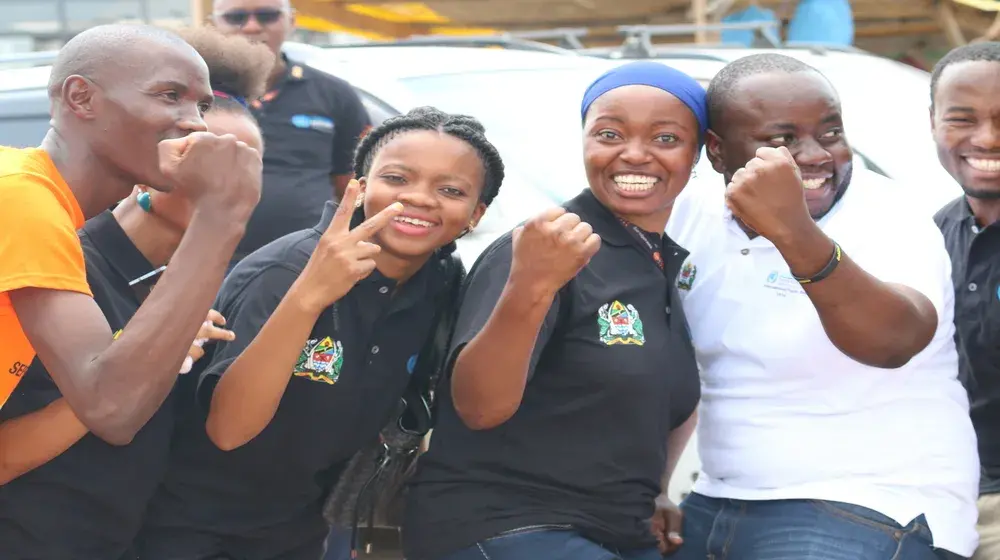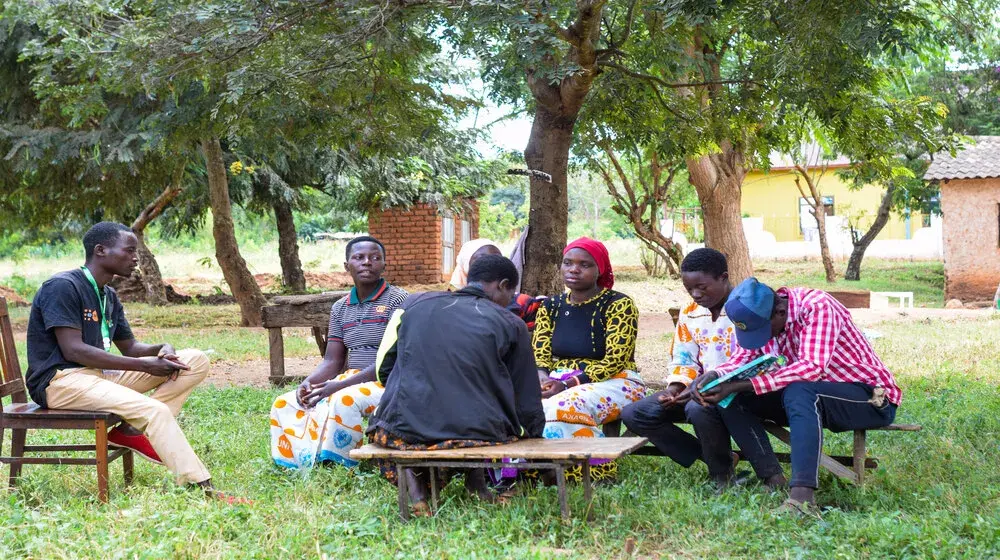Digital technologies are fuelling explosive growth, innovation and connection around the world. But these tools are also creating new kinds of inequalities. In Tanzania, as in many countries, girls have less access than boys to the internet and digital tools, including smartphones, and as a result, what they could achieve, their gifts, vision, ingenuity and the passion they could offer to the world is lost.
Information that empowers
In Tanzania, 69,000 girls become pregnant every year at a time when they should be in school, learning and gaining the skills which will allow them to flourish as they move into adulthood. Gender inequalities, including violence, poverty and a lack of access to age-appropriate sexual and reproductive health education, information and services intersect to fuel teenage pregnancies and deny girls of their potential – digital tools can help fill the gaps.
“We find that girls become more open to discussing the challenges they face after watching Harakati za Ngeti - Ngeti’s Movement,” says Debora Maboya, Head of Operations and Programmes at Tai Tanzania. “Girls need to be able to access non-judgemental sexual and reproductive health information and education that they can relate to.”
Tai Tanzania is revolutionizing the way sexual and reproductive health education is taught both in and out of school across Tanzania through 3D animation, tackling the challenges and inequalities that continue to impinge on young girls’ rights and choices, including gender-based violence and harmful practices, such as female genital mutilation, early, child and forced marriage and adolescent pregnancy. Each animation uses an instantly recognizable female role model, and while she may not have all the answers for adolescents, she is a source of both information and inspiration for her audience.
“Ngeti, our animated girl character, speaks out loud about the difficulties the girls who are watching are experiencing,” says Shalom Milele, a videographer and animator at Tai. “It gives them the confidence and hope to fight for their rights.”
More than 3 million young people have watched the animations online since Tai Tanzania launched the series in 2017, and a further 8,000 young people have been reached through sessions that allow them to discuss and ask questions about issues raised in the films.
An equal, safe digital space
UNFPA, the United Nations sexual and reproductive health agency, in Tanzania is supporting young entrepreneurs to harness technology and their creativity to expand access to accurate and age-appropriate sexual and reproductive health information, education and services, through the AMUA Accelerator, a public private partnership. Since 2017, eight teams of young people, with an equal representation of young women, have been supported with seed funding and mentoring to launch their apps, including Friendlicom that simultaneously translates sign language into text and vice versa so that health workers and persons with hearing impairments can communicate effectively.
“We recognize the power of young girls in Tanzania in today’s digital world,” says Deborah. “Tai are also providing a space at our studios where girls can get experience and training in the digital creation of 3D animation videos.”
On 11 October, on International Day of the Girl, with its national theme “Digital Generation Our Generation – “Kizazi cha kidigitali. Kizazi chetu”, UNFPA celebrates girls in Tanzania, like Deborah and Shalom, who are not only using digital tools, but creating them to close the gender gap, and remain committed to creating a digital world that is accessible and safe for all, allowing girls to build a better future.





